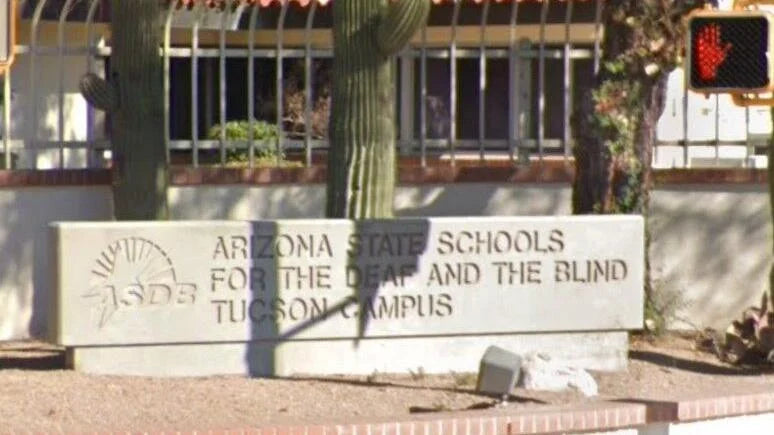
Deaf Schools in Arizona: A Complete Guide
Share
Table of Contents
- Introduction
- How to Choose a Deaf School in Arizona
- Deaf Schools in Arizona
- Arizona State Schools for the Deaf and the Blind (ASDB) – Tucson Campus
- Phoenix Day School for the Deaf
- Regional Cooperatives (Arizona)
- State-Specific Resources for Families
- Frequently Asked Questions (FAQ)
- Conclusion
Introduction
Arizona boasts some of the best educational opportunities for deaf and hard of hearing students within state-funded schools and regional programs. Through bilingual ASL/English instruction, academic growth, and family services, Arizona deaf schools provide supportive environments where students thrive. This guide offers a summary of Arizona's best deaf schools, suggested resources, and answers to frequently asked questions.
How to Choose a Deaf School in Arizona
Choosing a suitable deaf school in Arizona involves the evaluation of numerous important factors.
Types of Schools
Arizona provides state schools, regional day programs, and mainstreaming with interpreter support. Parents must weigh residential and day school options.
Language Approach
Most deaf schools in Arizona emphasize ASL as the primary language of instruction, combined with English literacy. The bilingual program helps with communication in school and at home.
Curriculum and Programs
Arizona schools offer complete academic programs, extracurricular activities, and vocational training. Most programs also offer early childhood services and transition support for post-graduation living.
Support Services
Support services such as audiology, speech therapy, counseling, and family involvement are very important. Parents should look for schools that provide individualized resources to help each student excel.
Deaf Schools in Arizona
Arizona State Schools for the Deaf and the Blind (ASDB) – Tucson Campus
- Location: Tucson, AZ
- Grades Served: PreK–12
- Unique Programs / Features: Bilingual ASL/English curriculum, residential programs, vocational training, technology integration
- Fact: Established in 1912, ASDB has been a cornerstone of deaf education in Arizona for more than a century.
Phoenix Day School for the Deaf
- Location: Phoenix, AZ
- Grades Served: PreK–12
- Unique Programs / Features: College prep curriculum, sports, arts, family involvement, ASL/English bilingual approach
- Fact: Phoenix Day School for the Deaf is one of the biggest day schools for deaf students in the Southwest.
Regional Cooperatives (Arizona)
- Location: Various regions across Arizona
- Grades Served: Varies by district
- Unique Programs / Features: Outreach services, interpreting services, itinerant teachers, early intervention services
- Fact: Regional cooperatives enable rural students to access specialized deaf education services without relocating.
State-Specific Resources for Families
Arizona has several resources for deaf and hard of hearing students' parents.
- Arizona State Schools for the Deaf and the Blind (ASDB): Oversees both Tucson and Phoenix campuses, plus statewide outreach services.
- Arizona Commission for the Deaf and the Hard of Hearing (ACDHH): Offers advocacy, interpreter certification, and community resources.
- Local Community Programs: Most Arizona cities have ASL classes, cultural activities, and family-centered support activities.
These resources help families acquire communication skills, open the door to advocacy, and access the general Deaf community.
Frequently Asked Questions (FAQ)
1. Is there a deaf school in every area of Arizona?
No. There are two big schools (Phoenix and Tucson), but regional cooperatives provide service in other areas of the state.
2. What is the difference between state schools and mainstream programs?
State schools like ASDB and Phoenix Day School offer ASL-enriched environments, and mainstream programs provide interpreting and support in regular classrooms.
3. How do parents enroll?
Parents can call ASDB or Phoenix Day School directly, or through their local school district for placement information.
4. Are early intervention programs available in Arizona?
Yes. ASDB and regional cooperatives have early childhood programs for infants and toddlers.
5. Can students engage in extracurricular activities in deaf schools?
Yes. Tucson and Phoenix schools have athletics, arts, and leadership programs for students.
Conclusion
Deaf schools in Arizona, like ASDB in Tucson and Phoenix Day School for the Deaf, provide comprehensive bilingual education and community engagement. With state resources and programs across the state, families can find opportunities that allow students to succeed academically and socially.
